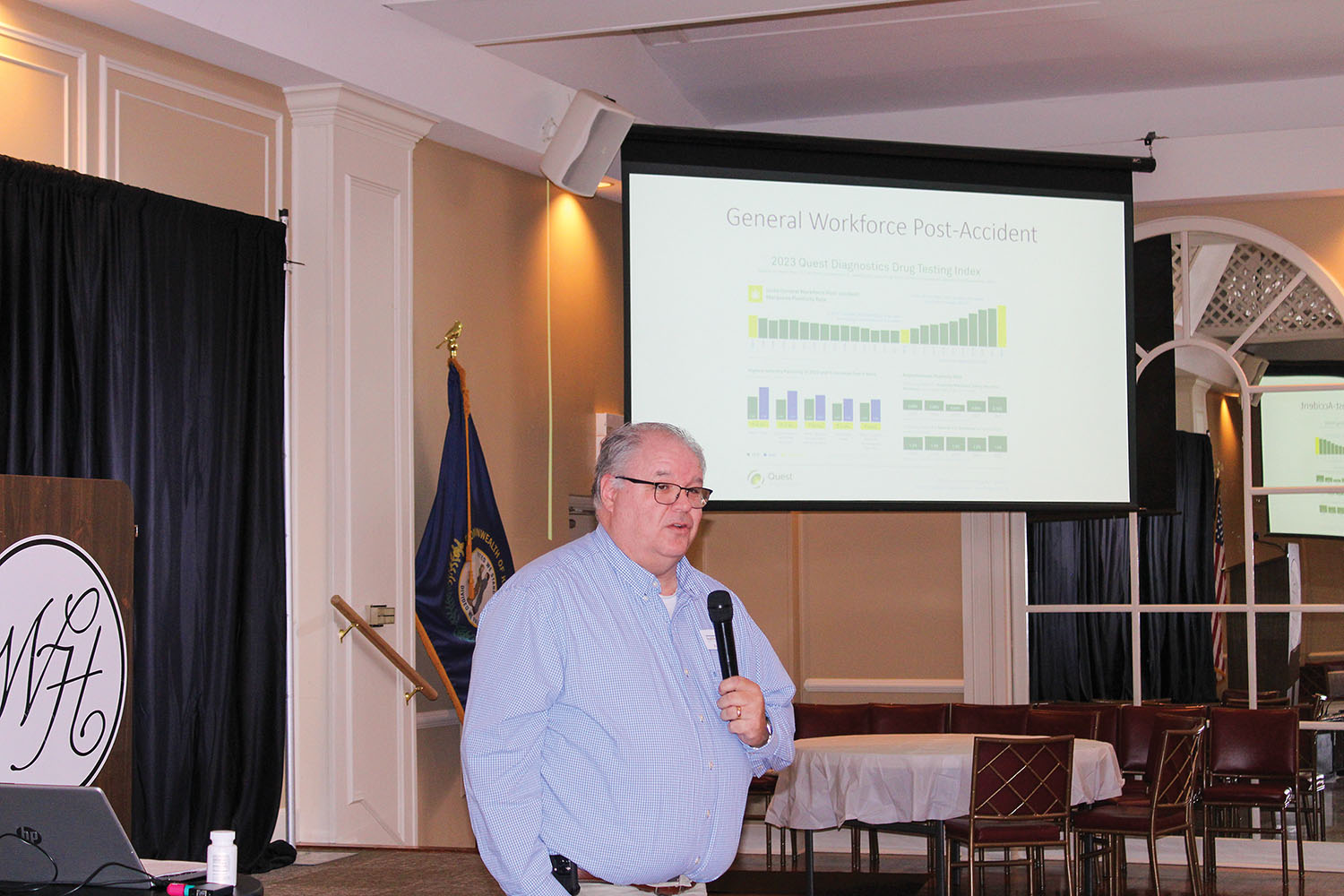Presenting information about how products containing CBD oils and marijuana can lead to positive drug tests, Ronnie King of HealthWorks Occupational Medicine was the guest speaker for the Paducah Propeller Club’s February 14 meeting.
King, chief operations officer for Healthworks Medical, said he wanted to address the topic because it is widely misunderstood how certain products can lead to a positive test, which can have ramifications for employment and licensure in the maritime sector.
The 2023 Quest Diagnostics Drug Testing Index showed that the U.S. workforce post-accident marijuana positivity rate was at its highest rate in 2022, the last year for which data was available, since 1997, according to information King distributed. That coincides with wider availability of products containing both cannabidiol (CBD), found in hemp products, and tetrahydrocannabinol (THC), the chemical that gives marijuana its high.
Marijuana is legal for medical use in 38 states and for recreational use in 24 states, plus Washington, D.C. On March 31, 2023, Kentucky Gov. Andy Beshear signed Senate Bill 47 into law, legalizing medical cannabis for Kentuckians beginning January 1, 2025. It is still illegal at the federal level.
A common reason drug testers have indicated when questioned about a positive test is indicating they had accidental contact with a THC-containing product, King said. He added that confirmation levels of testing are set high enough so that someone should not register as positive from having close contact with someone else who smoked cannabis, such as in a closed car.
“Now the one we hear more often than any is CBD oils,” he said.
Hemp-based CBD oil is legal at the federal level and in 47 states. King said it is widely available, found in retail stores, including pharmacies and even gas stations, and increasingly offered at the offices of medical providers, including chiropractors. Some veterinarians also carry formulas designed for pets. While such products are sometimes labeled “THC free,” King said that by law they may contain up to 0.3 percent THC to be so labeled.
“What they’re not telling the general public is if you work for the Department of Transportation (DOT) or the federal government, you can’t have THC in your system, and it doesn’t really matter how it got there,” King said.
Additionally, he said, THC compounds in a person’s system and is not water soluble, so it remains longer in systems of those who have a greater body mass index (BMI), a measure of body fat.
King showed examples of marketing for two different CBD products, highlighting disclaimers in fine print on a label and a website.
“Regardless of how that THC gets in your system, you are going to have a positive test if you use it long enough,” he said.
Often, he added, people don’t think about the compounding effects of THC in various CBD products. They might use a hand cream containing it that is marketed to help with joint pain and also a gummy containing CBD that is marketed to help people sleep or relieve anxiety.
If a test comes back positive for THC, there is no way for a doctor to overturn that ruling, even if CBD was medically prescribed, King said. He advised those in the maritime sector to tell any prescriber what they do for a living before accepting a prescription for any substance containing THC or CBD.
If found to test positive, consequences can be considerable, King said. He pointed to federal regulations, which say to keep a person in a DOT safety sensitive position, the person must see a substance abuse counselor and submit to testing at least six times for a minimum of one year. The counselor may determine that testing should continue for up to five years, he said. Employees can sometimes find the cost of such testing to be prohibitive.
While urine testing, which maritime employers currently use, can detect THC in a person’s system for up to 30 days, the DOT has recently approved oral fluid or saliva testing, which detects use for 36 to 48 hours, more in line with the period of any impairment from THC. However, King said, the infrastructure to administer oral fluid testing is not yet available. That is because the same labs that perform urine testing cannot be used for oral fluid testing, he said, adding that in his opinion it could be close to three years before oral fluid testing becomes available as a testing option.
Paducah Propeller Club President Caleb King thanked Ronnie King (no relation) for the presentation, saying that it was an interesting topic, prevalent in the industry and relevant to discuss.
Caption for photo: Ronnie King, chief operations officer of HealthWorks Occupational Medicine, speaks at the February 14 Paducah Propeller Club meeting at Walker Hall in Paducah, Ky. (Photo by Shelley Byrne)



